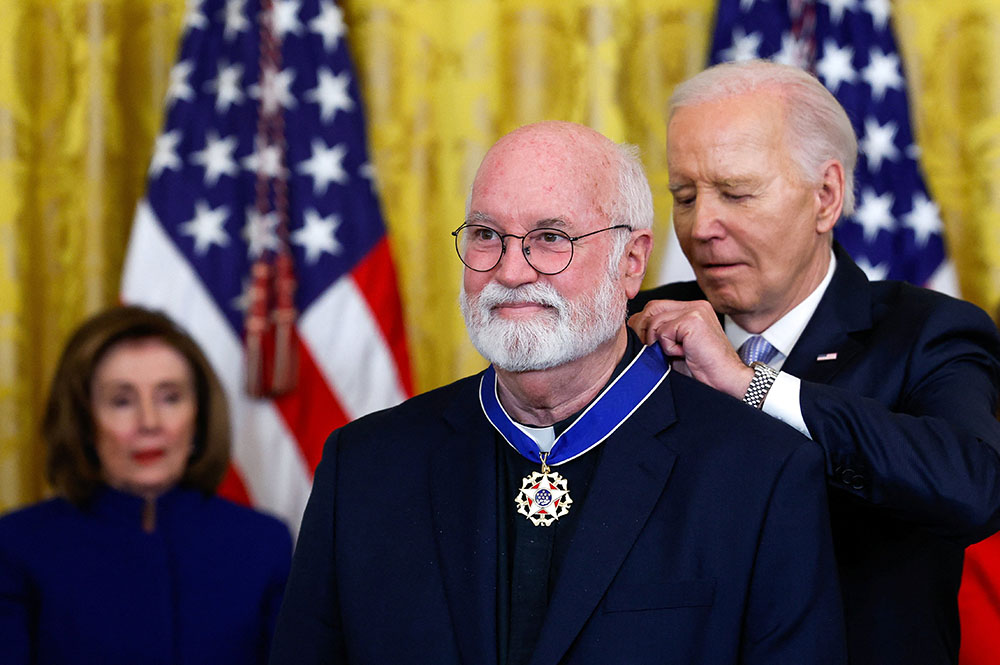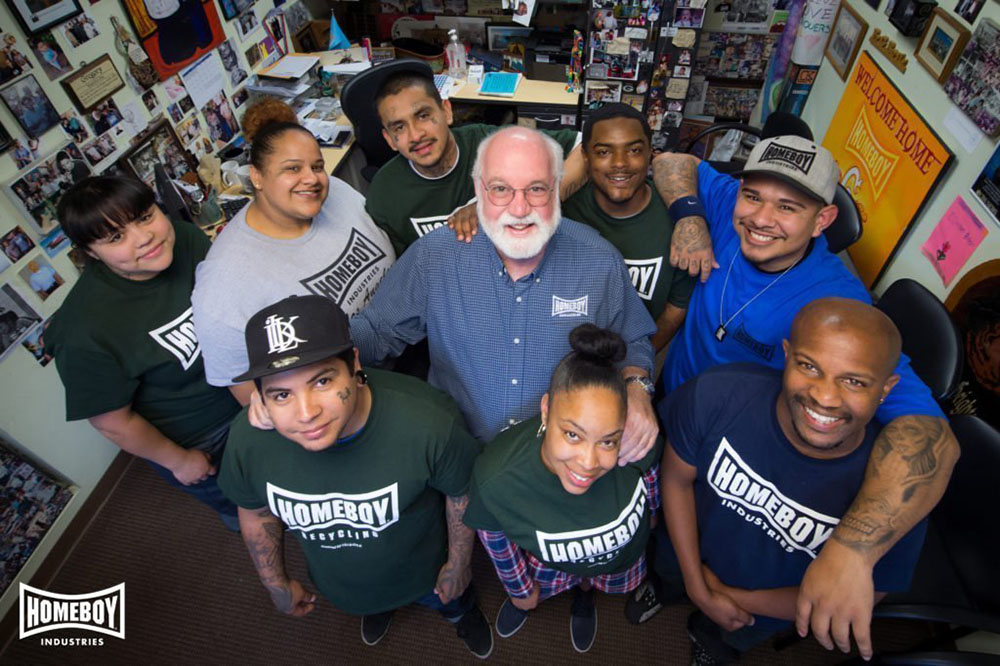
WASHINGTON — A White House audience watched Jesuit Father Greg Boyle receive the Presidential Medal of Freedom during a May 3 ceremony, but the crowd that likely had the most cheers for the 69-year-old priest was back in Los Angeles.
Members of Homeboy Industries, the gang rehabilitation program Father Boyle founded in 1992, gathered in the center’s lobby to watch the livestreamed ceremony on TV where their founder and director received the nation’s highest civilian honor.
During the ceremony, President Joe Biden said Father Boyle “has changed countless lives as pastor of a disadvantaged Catholic parish in Los Angeles.” He also said the priest’s “pioneering gang intervention programs” and his work as a Jesuit priest for more than four decades “remind us of the power of redemption and rehabilitation and our obligation to those who have been condemned or counted out.”
“Congrats, Father G. You deserve it,” Homeboy Industries posted on X May 3 along with a link to the White House ceremony.
The priest was one of 19 recipients of the 2024 Presidential Medal of Freedom, an award established by President John F. Kennedy in 1963 and given to those who have “made exceptional contributions to the security or national interests of America, to world peace, or to cultural or other significant public or private endeavors.”
Other Catholic recipients of the 2024 medal were former House Speaker Nancy Pelosi, D-Calif., and Olympic gold medal swimmer Katie Ledecky. Others who were given the award May 3 were former Vice President Al Gore, former New York Mayor Michael Bloomberg, TV pioneer Phil Donahue, civil rights activist Clarence Jones, astronomer Jane Rigby, actor Michelle Yeoh, and Opal Lee, an educator and activist known for her efforts to make Juneteenth a federally recognized holiday.
In a statement, the White House described Father Boyle as the founder of the world’s largest gang intervention and rehabilitation program and credited him with turning around the lives of thousands of Angelenos.

The priest has received multiple awards for his work including the California Peace Prize and University of Notre Dame’s Laetare Medal. In 2014, President Barack Obama named Father Boyle a Champion of Change, a White House recognition for “people doing extraordinary things to make a difference in their communities.”
Father Boyle was pastor at Dolores Mission Church in Los Angeles from 1986 to 1992, in an area with a high concentration of gang activity. In response to the neighborhood violence, the priest joined church and community members in 1988 to launch what would become Homeboy Industries.
It started as a bakery that provided former gang members with training and services to pursue a better life and has since expanded to other product lines and catering. The program provides education, mental health, legal, and employment services as well as tattoo removals. It has grown into the largest gang intervention, rehab, and re-entry program in the world.
In a talk two years ago at Regis University, a Jesuit-run school in Denver, Father Boyle encouraged the audience not to help those on the margins with a “fix and rescue” mentality, but with the idea of how changes can be brought about by the community itself.
He also said the invitation to reach out to those in the margins should not be done to “make a difference at the margins, but to allow the folks at the margins to make you different — if you’re there to receive and be reached by them, and to listen to them, and to cherish them. … Get in there,” he said.
